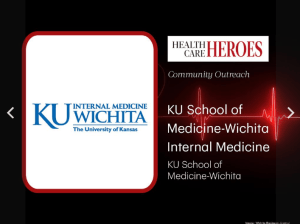Chronic knee pain is a pervasive issue affecting millions of people worldwide, often making everyday tasks such as walking, climbing stairs, and exercising a challenge. Traditional treatments for knee pain typically focus on methods such as physical therapy, medications, corticosteroid injections, and in more severe cases, knee replacement surgery. While these treatments can provide relief, they often come with limitations or risks of side effects, and their effects may not always be long-lasting. However, an innovative and minimally invasive procedure—Geniculate Artery Embolization (GAE)—has emerged as a promising solution for patients seeking relief from chronic knee pain, offering a safer, more targeted alternative.
Understanding Geniculate Artery Embolization (GAE)
Geniculate Artery Embolization (GAE) is a cutting-edge procedure that targets the blood vessels supplying the knee joint. The geniculate arteries are a network of vessels that supply blood to the knee, including the synovial tissues and the bone marrow. In patients with chronic knee pain, particularly those suffering from osteoarthritis or other inflammatory conditions, these blood vessels can become engorged or inflamed, leading to increased pain and swelling in the knee joint.
GAE involves a specialized technique where a trained interventional radiologist injects small embolic agents into the geniculate arteries to intentionally block or reduce blood flow to these inflamed areas. By limiting the blood supply to the pain-producing tissues, GAE helps to reduce inflammation, alleviate pain, and improve function in the affected knee. The procedure is done through a small incision in the groin or wrist, making it much less invasive than traditional surgical approaches.
How Does GAE Compare to Traditional Treatments for Knee Pain?
1. Minimally Invasive with Faster Recovery
One of the key advantages of GAE is that it is minimally invasive. Unlike traditional knee surgeries, which require large incisions, general anesthesia, and long recovery periods, GAE can be performed under local anesthesia and moderate sedation with no need for an overnight hospital stay. Most patients are able to return home the same day and resume normal activities within a few days. This stands in stark contrast to knee replacement surgeries, which often require weeks or even months of rehabilitation.
2. Targeted Treatment with Fewer Risks
Traditional treatments for knee pain, such as corticosteroid injections, aim to reduce inflammation but often have temporary effects and may carry side effects such as joint infection, skin thinning, or cartilage deterioration with repeated use. While knee replacement surgery offers long-term pain relief, it comes with significant risks like infection, blood clots, and a lengthy recovery time. GAE, however, is a more targeted approach. By specifically targeting the blood vessels supplying the knee joint, the procedure provides pain relief at the source, with minimal impact on surrounding tissues. Additionally, because GAE is performed with fine-tuned imaging guidance, the risks of complications are significantly reduced compared to traditional surgery.
3. Less Reliance on Medications
Chronic knee pain often leads patients to rely on pain medications, including nonsteroidal anti-inflammatory drugs (NSAIDs) or opioids, to manage their symptoms. These medications, particularly opioids, come with a host of potential risks, including addiction, gastrointestinal problems, and cardiovascular concerns. GAE can provide a long-term reduction in knee pain without the need for regular medication use. For patients who are looking to avoid long-term reliance on painkillers, GAE offers a sustainable and effective solution.
4. Sustained Relief and Potential for Long-Term Benefits
While knee replacement surgery may offer long-lasting relief, it is also an invasive procedure with a risk of complications, and not every patient is a suitable candidate for surgery. GAE, on the other hand, is a low-risk option that can offer long-term pain relief, particularly for patients with conditions like osteoarthritis who may not be ready for surgery. Some patients experience significant pain reduction for months or even years after the procedure, without the need for additional interventions. Additionally, if future knee replacement is desired, GAE does not prohibit a knee joint replacement.
5. Appropriate for a Variety of Knee Pain Causes
GAE is particularly beneficial for patients with knee pain due to osteoarthritis, a condition in which the cartilage in the knee deteriorates, causing inflammation, stiffness, and pain. However, the procedure can also help patients with other forms of chronic knee pain, such as those stemming from soft tissue damage or ligament injuries. Traditional treatments like corticosteroid injections or physical therapy are not always effective for these conditions, while GAE offers a more comprehensive and versatile solution.
Conclusion
As knee pain continues to affect millions of people around the globe, it’s essential to explore alternatives that can provide relief with fewer risks and quicker recovery times. Geniculate Artery Embolization (GAE) is a promising new option for individuals suffering from chronic knee pain, offering a minimally invasive, targeted solution that addresses the root causes of pain. Compared to traditional treatments like surgery or medications, GAE provides a less risky, more effective alternative with a faster recovery time, reduced reliance on medications, and the potential for long-term pain relief. For those seeking a solution that improves their quality of life without the complexities of traditional knee surgery, GAE could be the breakthrough they’ve been waiting for.
If you are suffering from chronic knee pain and are interested in learning more about Geniculate Artery Embolization, we encourage you to schedule a consultation with The University of Kansas – Interventional Radiology in Kansas City. Our team of experienced specialists can help you determine whether GAE is the right solution for you, providing personalized care and guidance every step of the way. Take the first step towards a pain-free future by contacting us today to book your appointment!












 through the COVID-19 Prevention Network testing the COVID-19 vaccine AZD1222, developed by Oxford University and purchased by AstraZeneca.
through the COVID-19 Prevention Network testing the COVID-19 vaccine AZD1222, developed by Oxford University and purchased by AstraZeneca. KU School of Medicine-Wichita,
KU School of Medicine-Wichita,

 Samuel Akidiva, M.D.,
Samuel Akidiva, M.D.,